
The Art of Purpose-Driven Branding – Creative Approaches and Powerful Examples
by Nida DanishOnce upon a time, brands had simple goals like offering the best to customers while maintaining high profits. But today, it’s more than goals; it’s about making a real impact.
More recently, there’s been a shift in the brands’ purpose towards more tangible goals that prove how a brand is giving back to the world —sustainability, transparency, worker well-being, community support, and looking after the environment. Many even aim for the gold standard, B Corp certification, proving they walk the talk by meeting the ecommerce sustainability metrics.
In this blog, we’re not just talking about finding purpose—we’re exploring the passion and heart behind it all. Here’s a deep dive into understanding and implementing the best intentions behind brand purpose and finding inspiration in some brilliant examples of purpose-driven brands.
You may also like: 5 sustainable brands on Instagram shaping a greener future
What is Purpose-Driven Branding?
Purpose-driven branding is all about companies or brands having a bigger reason for existing beyond just making money. It’s like the heart and soul of a brand, focusing on making a positive impact on the world or society. Purpose-driven brands go beyond selling products or services and are determined to bring positive social outcomes.
The leaders of purpose-driven brands implement practical idealism within the tight realms of capitalistic constructs. These practical ideals are consulted in every small decision of the business. They are deterred from ideas that only bring profits without the accompaniment of social benefit.
Building a purpose-driven brand means re-defining what constitutes success. Traditionally, success meant profit. As leader’s move up the Maslow’s hierarchy, they are redefining what purposes they serve.
Rise of Purpose-Driven Brands
The evolution of purpose-driven brands has seen an exponential curve recently as socially conscious consumers have grown.
As people care more about brands that match their beliefs, companies realize they need to do more than just make money. They’re now focusing on social and environmental causes, making it a big part of how they do business, not just something they do on the side.
However, purpose-driven branding can be dated back to as long ago as the 1800s,to companies like Kit-Kat. Their approach was about aligning business practices with broader social values like providing benefits like housing, education, and medical services to employees.
Until the late 1980s and 1990s, such purpose-driven campaigns were mostly run by nonprofits. More recently brands like The Body Shop and Patagonia became prominent examples of this shift, integrating sustainability and social responsibility into their core brand identity.
Brands that care about things like the environment, fairness, or helping communities show they’re more than just about selling stuff. This shift builds stronger connections with customers who care about the same things. People prefer and stick with brands that genuinely try to make a positive impact.
Types of Brand Purpose
Brands care about more than just making money. They focus on things like protecting the environment, being fair, and taking care of customers. Getting certified as a B Corp is a big goal for these brands. It proves they follow strict rules about being accountable, open, and doing good for society and the planet.
Below are some examples or types of purpose brands strive to achieve:
- Environmental Sustainability: Brands focusing on environmental sustainability aim to minimize their ecological footprint, reduce waste, and promote eco-friendly practices in their operations.
- Social Responsibility: These brands prioritize making a positive impact on society, supporting communities, and addressing social issues like poverty, education, or healthcare.
- Ethical Sourcing and Production: Purpose-driven brands ensure their products are sourced and produced ethically, respecting fair labor practices and minimizing exploitation.
- Transparency and Authenticity: They prioritize honesty, openness, and authenticity in their communication, operations, and relationships with customers, fostering trust.
- Customer Stewardship: Brands committed to customer stewardship prioritize delivering value, satisfaction, and support to their customers, focusing on their needs and well-being.
Building and Growing a Purpose-Driven Brand
Developing a purpose-driven brand isn’t just about selling; it’s about making a real difference. We’ll explore how to define your brand’s purpose, integrate it thoroughly, and measure the impact you create. That’s the core of building a brand with true meaning.
Define Your Purpose
Start by clearly defining your brand’s purpose beyond profits. Make sure your brand and your values are in sync by learning what your brand stands for. Your actions and decisions will be guided by this clarity, which will be well-received by internal stakeholders and customers alike.
Integrate Purpose Throughout
Make sure that your brand’s operations, corporate culture, merchandise, marketing strategies, and other areas are all reflected in your mission statement. Ensure that your purpose is more than just a catchphrase; rather, make it a lived experience that shows up in your everyday interactions and activities.
Measure and Communicate Impact
Follow your progress toward your objective on a regular basis. Calculate the social or environmental impact your brand has, then openly share the results. Openness and credibility are enhanced when these findings are shared with stakeholders who share the same values.
Brilliant Examples of Purpose-Driven Brands
These brands are leading the way in using business to do good, especially in social justice and the environment. Let’s check out some fantastic examples that are setting high standards for purposeful initiatives.
1. Alaska Glacial Essentials
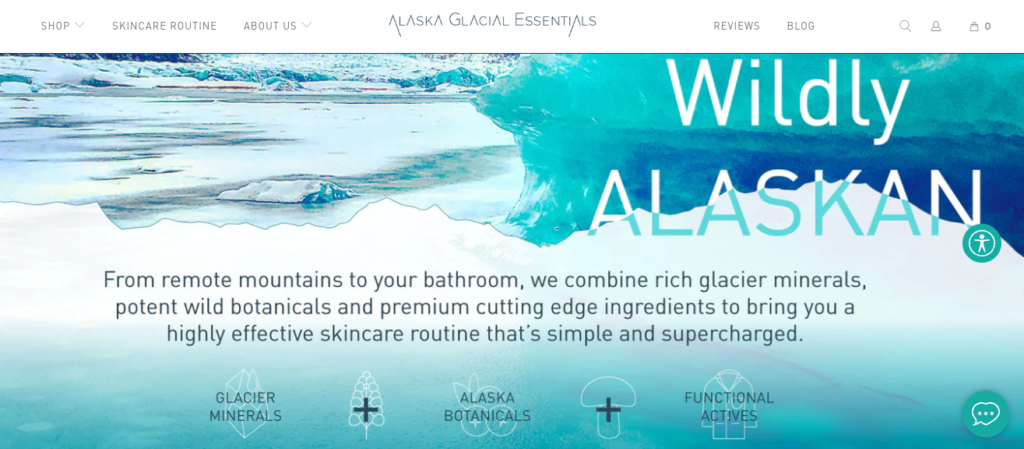
Alaska Glacial Essentials, based in Alaska, is all about sustainability. They care deeply about the environment, and their products reflect that. The company sources premium ingredients from nature and conscious growers, including wild-harvested botanicals, glacier water, and mineral clay, all sustainably hand-harvested and abundantly available.
Their dedication to being green goes beyond their products—like making things in a small, energy-efficient factory powered by community hydropower. Plus, they’re big on being vegan and cruelty-free. They’re a brand that’s serious about beauty and doing right by the planet.
Alaska Glacial Essentials practices sustainable packaging, using FSC-certified paper and cardboard made from post-consumer waste, along with biodegradable inks. They ship orders using recycled materials and incorporate recyclable materials like glass, aluminum, and PEG plastic in their product components. Despite their pride in these choices, they strive for continuous improvement and plan to further enhance packaging while finding innovative ways to recycle and offset their carbon footprint as more options become available.
2. Bella Tunno
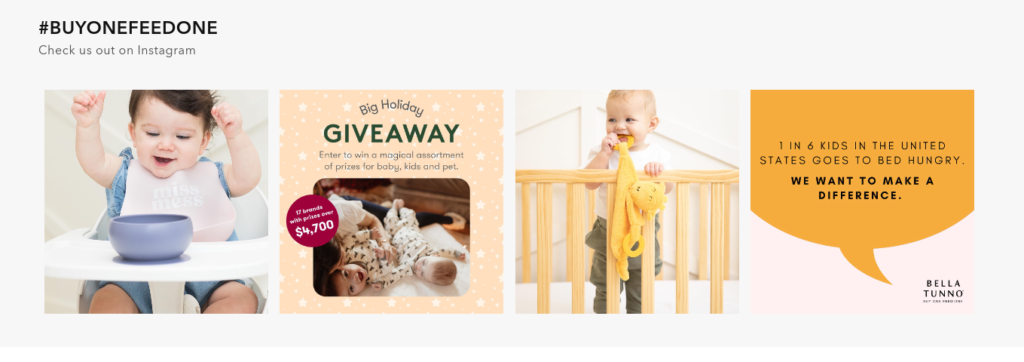
Bella Tunno stands as a remarkable, sustainable brand committed to impactful change. Through their #buyonefeedone initiative, they’ve donated over 10.6 million meals, partnering with Feeding America to address child hunger. Their dedication to social impact drives their mission, with a focus on eradicating child hunger as a UN Sustainable Development Goal.
As a B Corp, Bella Tunno embodies sustainability in various aspects, using sustainable materials, recyclable packaging, and offering environmentally-minded solutions. With a team led by women, the company emphasizes empowerment, providing comprehensive benefits and support for their employees’ well-being. Through their purpose-driven initiatives and unwavering commitment to making a difference, Bella Tunno shines as a force for good and sustainability.
3. Project Reef Suncare
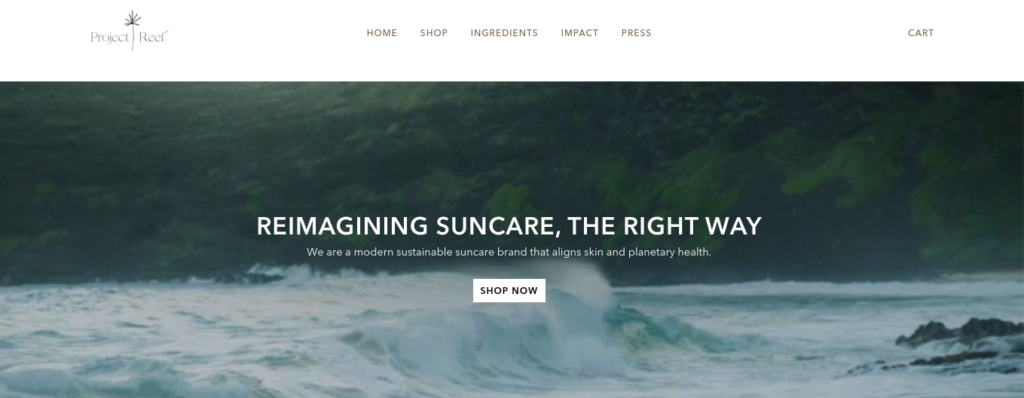
Project Reef stands as a staunch advocate for ocean health and sustainability. With a strong commitment to our oceans, their reef-positive products aim to prevent plastic pollution, with each purchase preventing 1lb of plastic from entering the oceans. They measure their impact in pounds of plastic prevented, CO2 emissions reduced, jobs provided from plastic cleanups, and community events supporting ocean regeneration.
Partnering with initiatives like Project Reef and the Coral Reef Alliance, they actively restore degraded landscapes, implement reef restoration programs, and educate communities on environmental conservation.
As a B Corp Certified Brand and committed to becoming climate-neutral by 2023, Project Reef is dedicated to continuously improving sustainability practices, creating a positive impact on the environment, and supporting reef restoration initiatives. Their mineral suncare line reflects their ethos, made with ethically sourced ingredients and sustainably packaged to align with their commitment to a healthier planet.
4. Ocushield
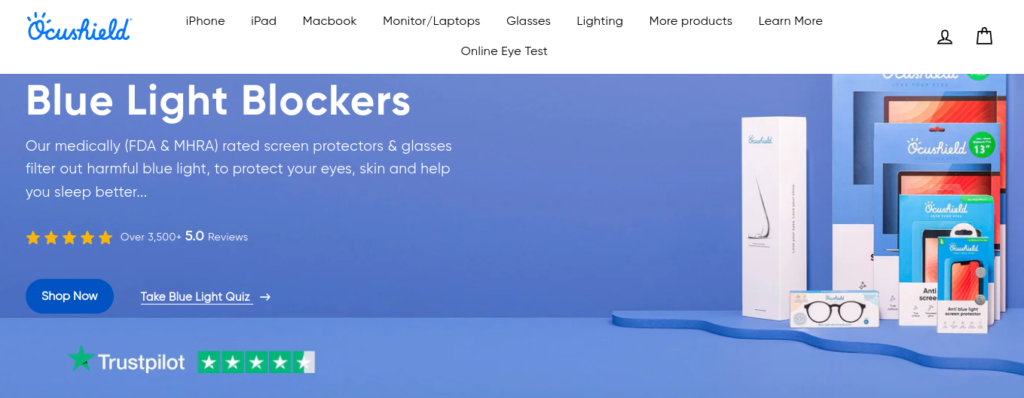
Ocushield, founded by Dhruvin, emerged from a university competition and has since transformed into a brand dedicated to eye health, impacting over 152,000 customers worldwide.
Their manifesto revolves around recognizing the importance of healthy eyes in enhancing overall well-being, especially in a digital world laden with screens.
Concerned about global vision impairment, Ocushield donates a portion of sales to Orbis and Guide Dogs, supporting vision care in low-income countries and aiding the visually impaired in the UK.
Certified as a B Corp., Ocushield maintains rigorous standards in sustainability, charity contributions, and fair employment practices. Recognized with The King’s Award for Enterprise in 2023, Ocushield stands as a socially responsible brand committed to innovation, sustainability, and social impact.
5. The Gluten Free Brothers
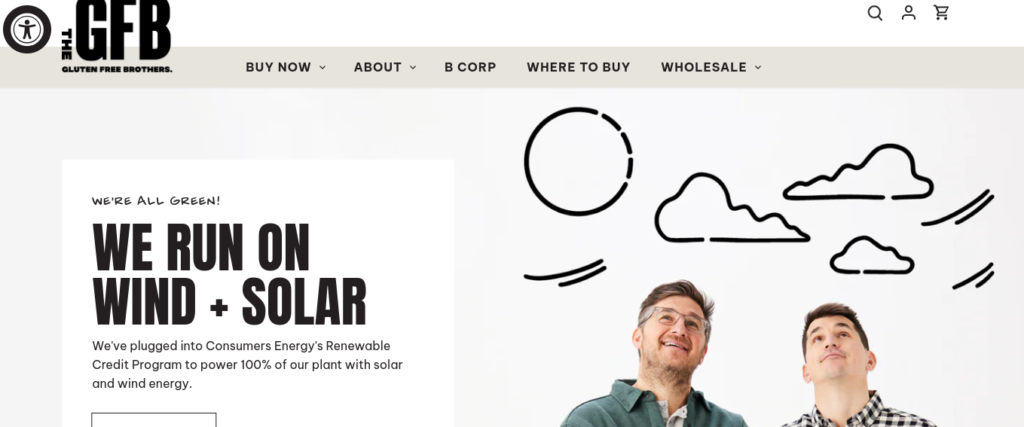
The Gluten Free Brothers (GFB) were born out of a quest for better gluten-free food options. Committed to transforming the landscape of healthy eating, they created a range of plant-based, gluten-free snacks that don’t compromise on taste.
Operating their own facility, the GFB controls the entire production process, ensuring quality in every small-batch creation while maintaining a zero-waste environment. As a Certified B Corporation, their dedication to sustainability is evident through their zero-waste facility powered by solar and wind energy.
They prioritize high-quality, non-GMO, vegan, and kosher-certified ingredients, crafting snacks packed with plant-based protein that not only satisfy cravings but also align with their mission for responsible and delicious food. The GFB isn’t just about making snacks; it’s about making a positive impact on their workforce, community, and planet through their sustainable practices.
Conclusion
Purpose-driven branding goes beyond just making money. It’s about being kind to everyone—the people involved, the planet, and society. To do this, a brand’s mission must match its values in everything it does.
A purpose-driven brand needs a clear mission, spread throughout the whole company, and must show openly the good it’s doing. This strategy isn’t just about pleasing customers, it’s about making a better, more honest, and kinder business world.
- About the Author
- Latest Posts
Formerly an English trainer, a dearth of creativity led me into the world of digital marketing. I now channel my linguistic prowess as a Content Strategist at CueForGood.
-
Jiva’s Organic Traffic Growth: 354% Surge in 6 Months | CueForGood
by Nida DanishSummary: Jiva’s efforts to empower smallholder farmers weren’t gaining the digital traction they deserved. With a strategic overhaul led by …
Continue reading “Jiva’s Organic Traffic Growth: 354% Surge in 6 Months | CueForGood”
-
What We Learned When We Switched From Disposable Tissues to Reusable Napkins
by Nida DanishAt CueForGood (CFG), we’ve embraced a refreshing change: reusable cloth napkins. While the switch may seem minor, it’s rooted in …
Continue reading “What We Learned When We Switched From Disposable Tissues to Reusable Napkins”
-
Of Light, Laughter & Transformation: Diwali 2024 at Cue For Good
by Nida Danish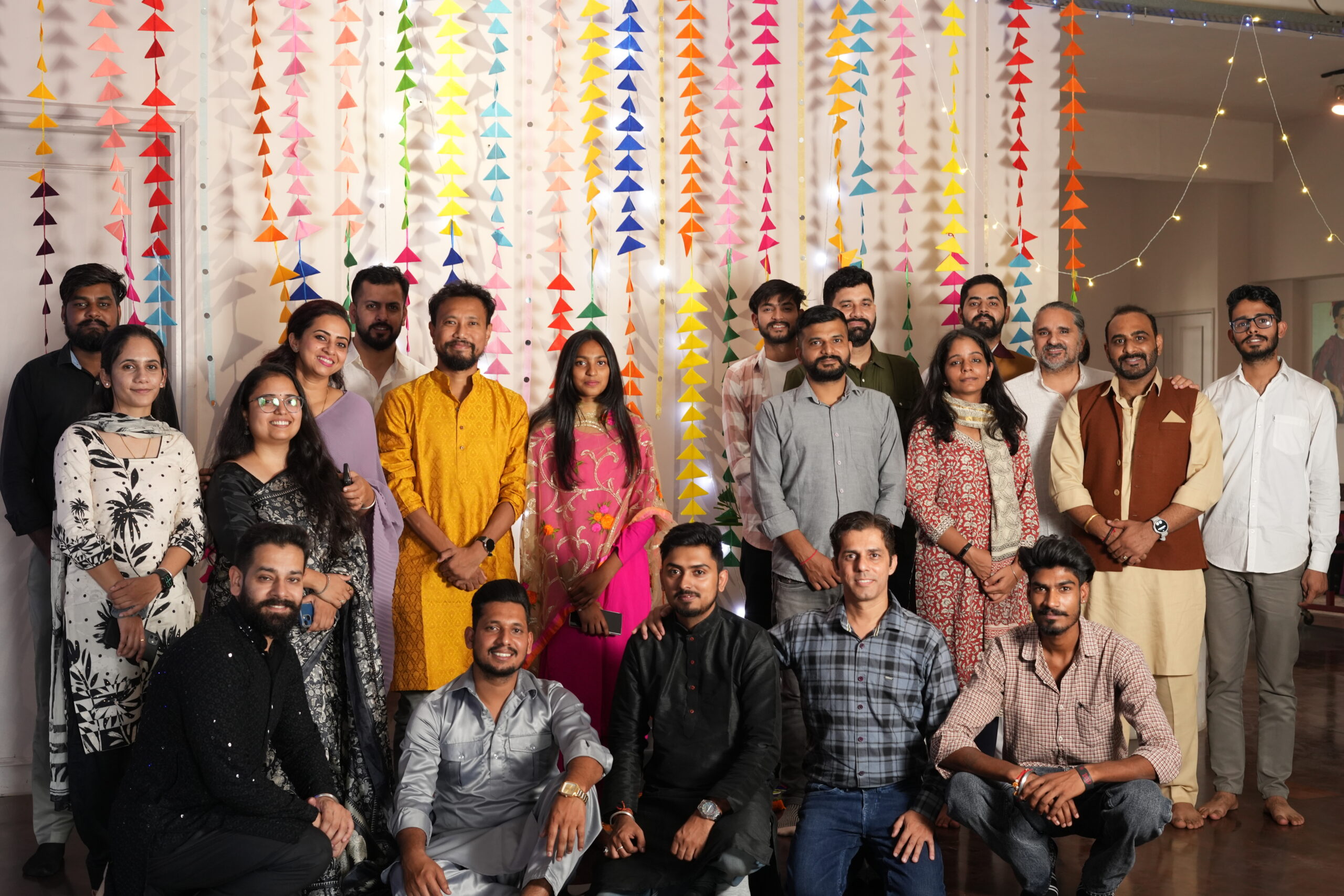
On any given day, walking into the Cue For Good office feels like stepping into a space with heart. It’s …
Continue reading “Of Light, Laughter & Transformation: Diwali 2024 at Cue For Good”
-
Why PHP Still Matters in 2024: A Look at Its Continued Relevance
by Girish TiwariAt its peak in the early 2010s, PHP powered the majority of websites globally, including major platforms like Facebook and …
Continue reading “Why PHP Still Matters in 2024: A Look at Its Continued Relevance”
-
How Meta’s New Holiday Ad Features Can Transform Your Business This Season
by Charanjeev SinghThis year, Tapcart’s 2024 BFCM Consumer Trends Report suggests that nearly 60% of shoppers kick off their holiday shopping in …
Continue reading “How Meta’s New Holiday Ad Features Can Transform Your Business This Season”
-
Cue For Good’s Journey at the B Corp Festival 2024: Exploring Louder Than Words
by Pancham PrasharOn September 10th and 11th, 2024, I had the incredible experience at the “Louder Than Words” B Corp Festival, held …
Continue reading “Cue For Good’s Journey at the B Corp Festival 2024: Exploring Louder Than Words”






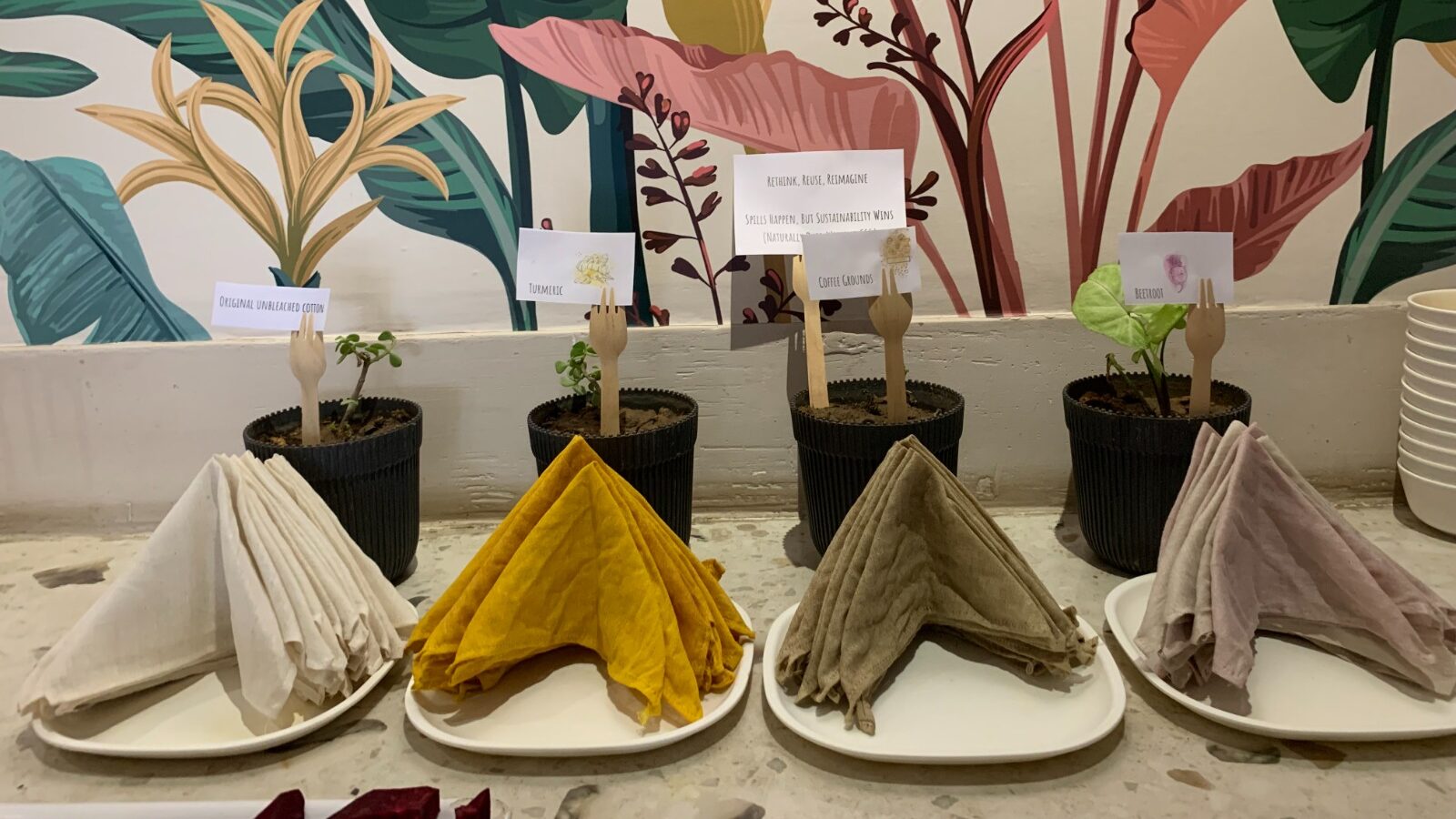
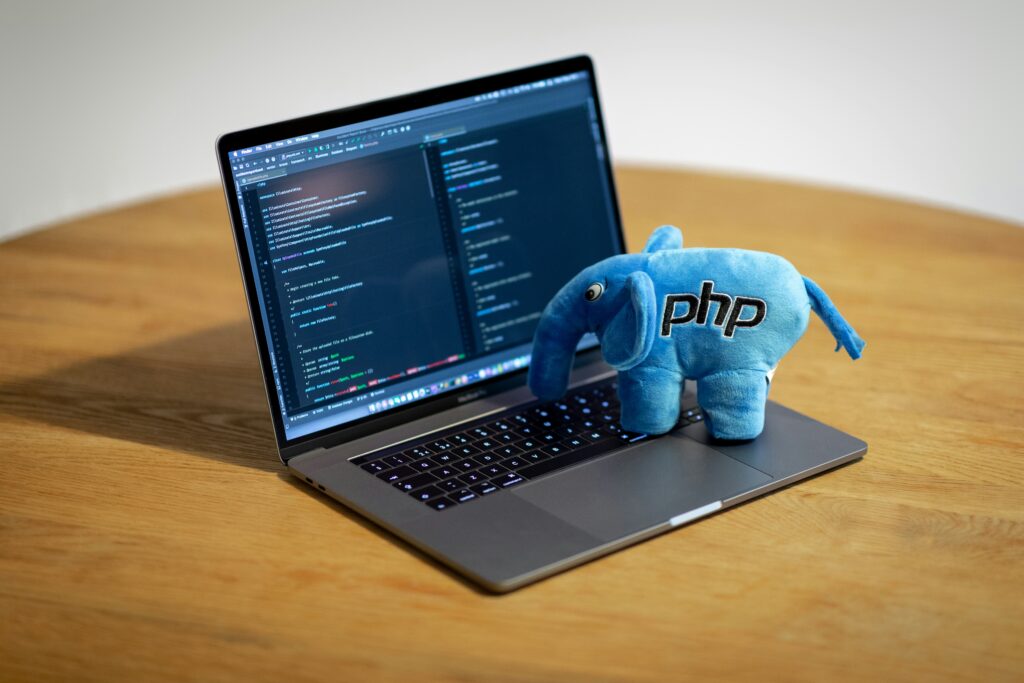

2 Replies to “The Art of Purpose-Driven Branding – Creative Approaches and Powerful Examples”